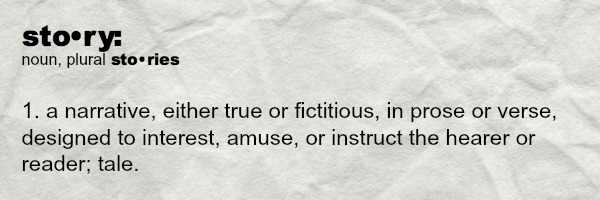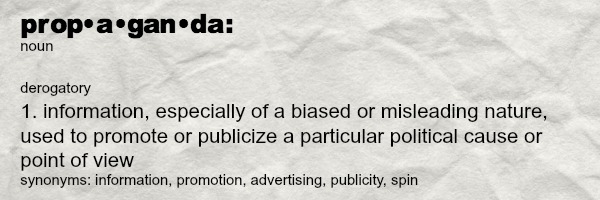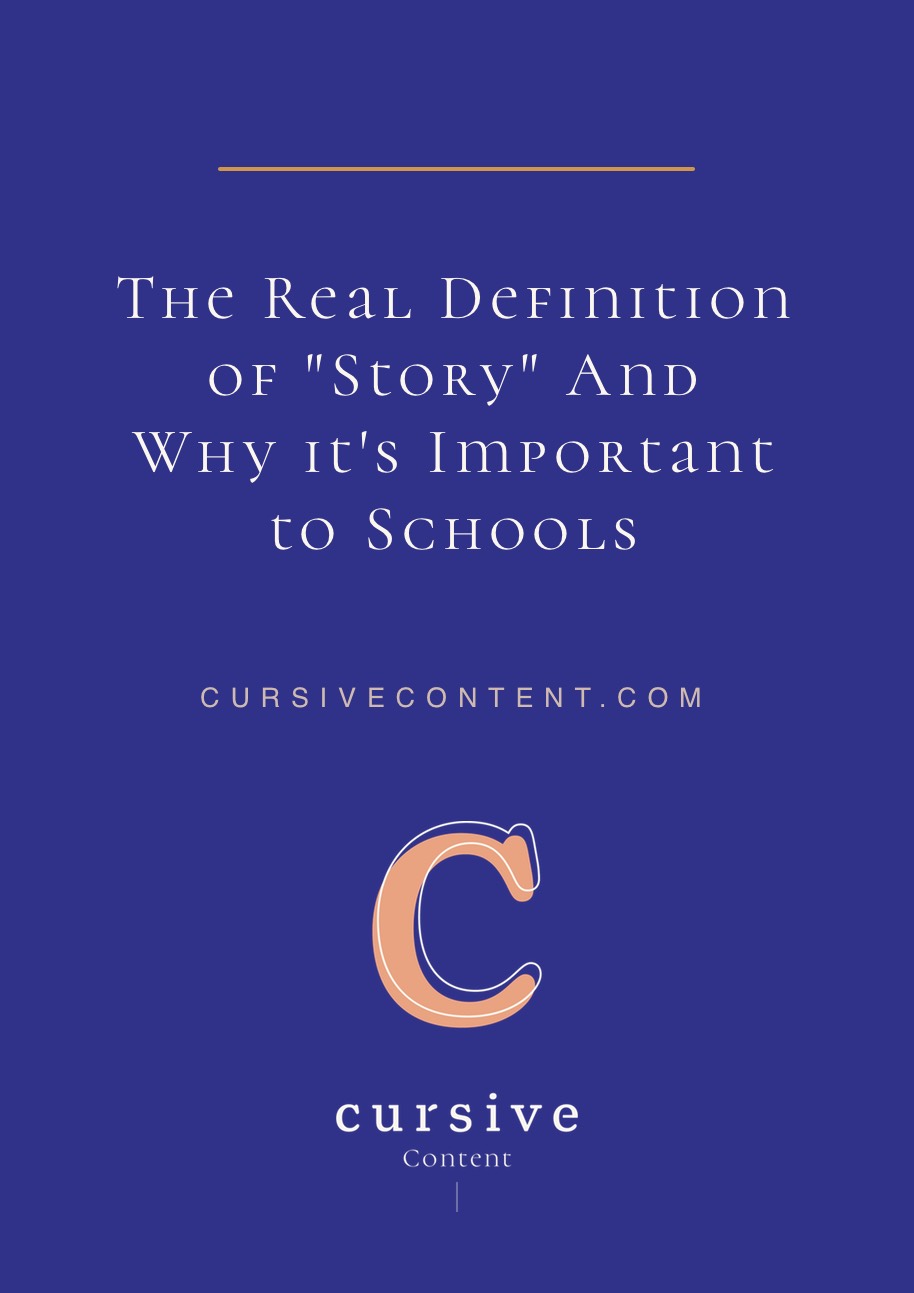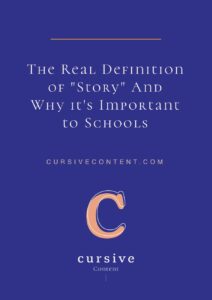The Real Definition Of “Story” – And Why It’s Important To Schools

“Story” and “storytelling” have become buzzy.
Really buzzy.
Buzzy to the point where the buzz is louder than the words themselves. A meaningless hum in a cluster of identical honey bees.
So I have a question for you:
What is the definition of the word “story”?
Do you know? How would you explain it in your own words?
I’ll give you a second…
New: Audience-First School Storytelling Kit
Want to learn exactly how to win over dream families with breakthrough school storytelling? This on-demand kit includes instant access to:
- In-depth video workshop
- Workshop workbook
- Family survey template
- Email template
- Voice of Customer research spreadsheet
- Audience persona template
- Sample dream family persona
…OK, time’s up.
I ask because it’s important. As marketers, we should know what the words we use mean.
Seems obvious, right? But when I see the words “story” and “storytelling” thrown around so often, I begin to wonder if anyone is paying attention.
And we should be paying attention. Because “story” has a pretty interesting definition.

(source: dictionary.com)
What I find most interesting about this definition is simple:
It focuses on the hearer or reader. It does not focus on the teller or the writer.
This is a small yet critical point. A story is all about pleasing the audience.
A story is not about the teller’s ego or agenda. It is all about the intended response of the hearer or reader.
A story belongs to its audience.
So if we’re going to talk about “stories” and “storytelling” in marketing, let’s be real.
A press release announcing your newest building or latest award is not a story.
A blog post recapping your volunteer work is not a story.
A case study about your technology lab upgrade or latest program is not a story.
That’s propaganda.

(source: Google)
So which are you producing – stories or propaganda?
Ask yourself these questions to find out:
- Does it put your audience first? Are you focusing on helping your audience with what they really need? Are you making them the hero of your story?
- Does it demonstrate real impact? Are you sharing information that shows how you’re doing work that is meaningful to your audience (not simply elevating your ranking or increasing your bottom line)?
- Does it make it easy for your audience to connect? Are you providing your audience with both rational and emotional reasons to believe in and connect with your school story, and adopt it as their own?
- Does it put information into bigger context? Are you bringing facts and statistics to life by explaining them to your audience in a way that makes sense in the context of their own wants and needs?
If what you’re producing and sharing does these things, congratulations story master.
If not, it’s time to rethink your tactics, sergeant.
So the next time you sit down to develop a “story”, be honest with yourself.
Understand your own motivations. Then see if you can shift those motivations to make them meaningful from your audience’s perspective.
If you can’t, it’s OK. You might have information that you still need to share.
But please, don’t call it a story.
For help shaping your school story into one that’s meaningful to your audience and boosts admissions, learn more about working with us.
MORE ARTICLES
-
 Why “Strong Academics & Caring Community” Aren’t a School Story
Why “Strong Academics & Caring Community” Aren’t a School Story -
 Busy, Scattered, Exhausting: What’s Really Wrong With Your School Marketing
Busy, Scattered, Exhausting: What’s Really Wrong With Your School Marketing -
 Why Most Schools Don’t Actually Have a Clear Story
Why Most Schools Don’t Actually Have a Clear Story -
 Clarity in 50 Words or Less: How to Write Your School’s One-Sentence Story
Clarity in 50 Words or Less: How to Write Your School’s One-Sentence Story -
 The 4 Building Blocks of a Strong School Story (and Why AI Needs Them)
The 4 Building Blocks of a Strong School Story (and Why AI Needs Them) -
 How to Stop ChatGPT from Making Your School Sound Generic
How to Stop ChatGPT from Making Your School Sound Generic -
 What Should Your School Do with Its Blog Now That AI Is Changing Search?
What Should Your School Do with Its Blog Now That AI Is Changing Search? -
 What Is Your Private School’s Bold & Unifying Big Promise?
What Is Your Private School’s Bold & Unifying Big Promise?



THANK YOU!!!! Very well said.